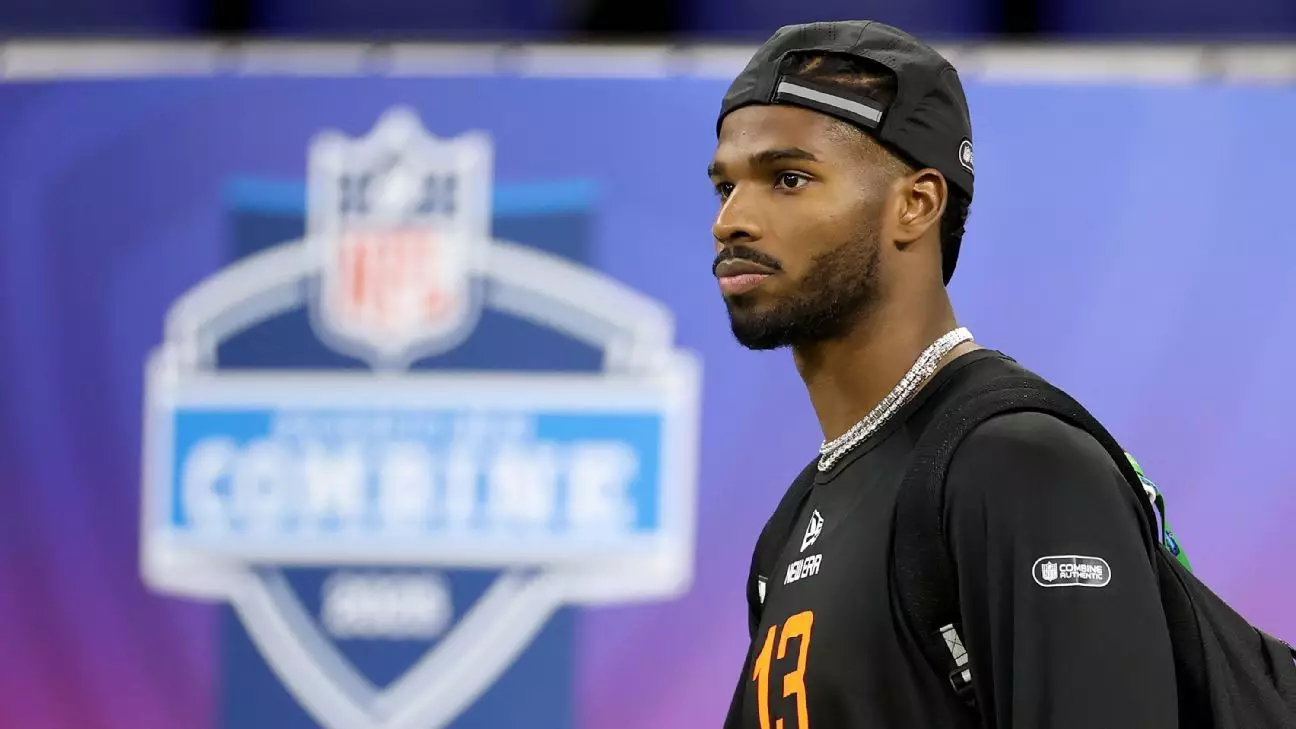In a world where social media magnifies every minor event into a colossal spectacle, the recent prank call made by Jax Ulbrich, son of Atlanta Falcons defensive coordinator Jeff Ulbrich, to Shedeur Sanders raises uncomfortable questions about privacy, respect, and accountability in the highly scrutinized realm of professional sports. The NFL Draft, a momentous occasion for young athletes, turned into a mockery, revealing not just the immaturity of one individual but also exposing significant systemic issues within the sport regarding data management and respect for personal boundaries.
Jax Ulbrich’s admission of guilt came through an Instagram post, where he acknowledged his actions as “completely inexcusable, embarrassing, and shameful.” This public confession inevitably shifts the focus from the prank itself to the broader implications of how such pranks intertwine with the burgeoning concerns surrounding an athlete’s privacy during a crucial career milestone. The leak of Sanders’ private number is not simply an error but a severe breach that could have long-lasting repercussions for how player data is handled within the NFL.
The Impact on Shedeur Sanders
For Sanders, the experience turned what should have been a pinnacle moment of joy and celebration into a surreal situation laden with confusion. As he waited for his name to be called in the NFL Draft, the unsettling call impersonating New Orleans Saints GM Mickey Loomis must have muddled his excitement. Sanders’ reaction—surprised yet unfazed—typifies a certain maturity in handling unexpected setbacks; he stated that he didn’t let it affect his state of mind. However, the question remains whether such incidents disrupt the sanctity of a once-in-a-lifetime experience.
While Sanders expressed that he was not particularly upset about the prank, young athletes deserve a level of dignity during emotionally charged moments. The NFL Draft is about dreams coming true, not about navigating through the fallout of childish antics. His subsequent nonchalance can be interpreted as a coping mechanism developed through years of competition. But this real-time event exposes a deeper flaw within the culture—where pranks at the expense of nerve-wracking life events become normalized and even trivialized.
Implications for the NFL and Its Culture
The Atlanta Falcons’ response conveys an understanding of the seriousness of the incident but also highlights an alarming lack of oversight regarding data security. The organization claimed that Jeff Ulbrich, the defensive coordinator, was oblivious to the mishap before it occurred, which stresses a disconcerting level of negligence. Players should not have to worry about prank calls contaminating their pivotal moments. The NFL must reassess its protocols to safeguard players’ personal information rigorously.
Furthermore, this incident presents an opportunity for the NFL to instill a culture of respect and professionalism. While the league is filled with players who show remarkable endurance and talent, the off-field conduct often leaves much to be desired. Casual pranks that undermine the respectful boundaries of personal privacy must be eradicated, as they contribute to a broader culture of immaturity that can manifest in various detrimental ways.
A Call for Accountability Among Peers
As athletes striving for greatness look up to their coaches, mentors, and fellow players, it’s imperative that accountability becomes part of this ecosystem. Jax Ulbrich’s apology partially fulfilled this obligation, but it’s not sufficient. Institutions should foster an environment where inappropriate behavior, such as prank calling fellow athletes, is condemned rather than quietly dismissed. Unfortunately, the situation is exacerbated when other players, like Tyler Warren and Chase Lundt, report similar experiences during the draft, suggesting that such pranks may be more pervasive than previously thought.
The reaction of the Falcons, coupled with the league’s ongoing investigation into the breach of Sanders’ privacy, provides a small glimmer of hope for change. By acknowledging the misconduct, they might motivate the entire league to approach player privacy with renewed seriousness. Athletes deserve the dignity to experience milestones like the NFL Draft without fear of intrusion, mockery, or disdain from those who should be supporting them. The purpose of this profession should transcend beyond mere entertainment; it ought to foster an environment of mutual respect.
The hope is that as pranks become chastised rather than celebrated, the NFL can cultivate a culture that champions respect, responsibility, and maturity—qualities that extend far beyond the field.

